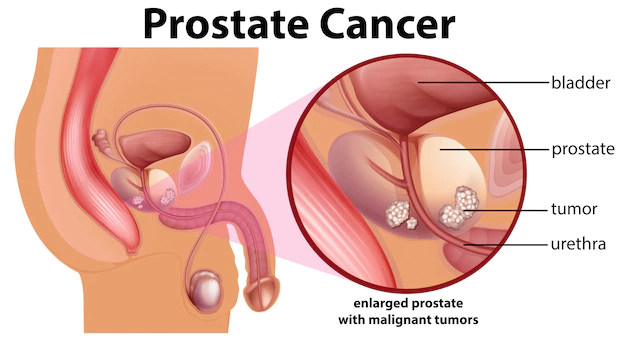
The prostate gland, an essential part of the male reproductive system, is responsible for making fluid that’s ejaculated with semen through the penis. The abnormal growth of the cells in your prostate can result in a tumor. The question is, what are the symptoms of stage 1 prostate cancer, and when should you see a prostate cancer specialist in Navi Mumbai? In this post, we’ve listed the common early signs of prostate cancer that every male, particularly those above 50, should be aware of.
Understanding Stage 1 Prostate Cancer
Stage 1 prostate cancer is localized to your prostate, meaning it doesn’t spread beyond the prostate. Early detection makes treatment more favorable for the patient, as cancer at the first stage is usually confined to the prostate. The tumor is more minor, slow-growing, and highly treatable at this stage.
Prostate cancer, like other cancers, does not show any noticeable symptoms at the first stage. It can be diagnosed during your routine healthcare checkup, but symptoms-wise, there’s nothing very unusual that may encourage you to visit a urologist. That said, some men do experience changes in their prostate health. Although they don’t certainly mean you have cancer, it’s best to consult a doctor if you notice these signs.
Common Symptoms of Prostate Cancer
Here’s what can indicate prostate cancer:
1) Changes in Your Urination Pattern:
You might experience many urination issues, like difficulty starting the flow, frequent urination, weak urine flow, pain or a burning sensation while urinating, and hematuria. Since the prostate surrounds the urethra, a cancer in the prostate can affect your urination pattern. However, these changes are mostly noticeable when the tumor has grown in size and spread to the surrounding tissues and lymph nodes.
2) Pelvic Pain:
Although it’s usually associated with an advanced stage of prostate cancer, pelvic pain can occur in patients with prostate inflammation or BPH (prostate enlargement) in the first stage. Pelvic pain that remains persistent and occurs with blood in the urine, frequent urination, and other unusual symptoms need to be evaluated by a healthcare professional.
Other Warning Signs
Symptoms of prostate cancer at the early stage are often related to the changes in urination pattern, but a few other cancer signs that are often confused with other prostate-related issues include:
- Pain in the back
- Pain while ejaculation
- Loss of appetite
- Unexplained weight loss
- Bone pain
Importance of Regular Check-ups
Routine screening is the most crucial step for older men who are at increased risk of prostate cancer. A digital rectal exam (DRE), for instance, can help your doctor identify any unusual lumps or prostate enlargement at an early stage.
Prostate-Specific Antigen (PSA) test is another common way to detect cancer. PSA is a protein produced by a healthy and cancerous prostate. Elevated levels of this prostate can indicate cancer, although the high levels are also linked to benign conditions, like prostatitis and benign prostatic hyperplasia (BPH). Based on your results, your doctor will tell you whether you need to go for prostate cancer treatment in Navi Mumbai.


